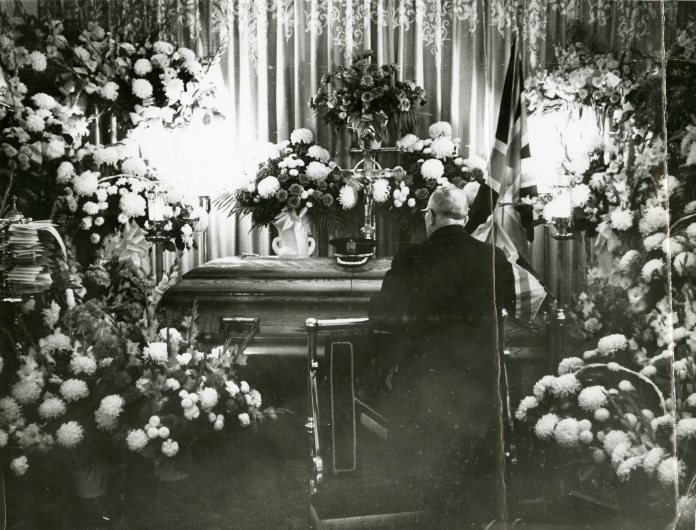Ok, I will admit it – I have a fascination with death. Perhaps, it is a hazard of being a genealogist and local history librarian, but I think that it comes from a deep and visceral level. We all die. It’s a fate that we cannot escape. The myriad of rituals and beliefs tied up with death and dying makes the obsession that much more intriguing.
I am a regular obituary reader. Daily, I’ll scan over the obituaries online to see if I recognize a name, a face or family. While I may not personally know the departed, I often recognize distant and former neighbours, co-workers, or casual acquaintances. As I grow older, the recognition of names, sadly, becomes more frequent.
Funerals are another curiosity of mine. The ceremony, rituals, beliefs and practices of death and its commemoration are fascinating – especially when seen over time. And I’ve always wondered about the special breed of people that choose or find themselves in this field of work.
Marion Roes knows much about funeral home history in Waterloo Region. Her family founded the Dreisinger Funeral Home in Elmira. Come join me on Monday November 16th @ 7pm at Country Hills Community Library, 1500 Block Line Road, Kitchener to hear Marion’s updated talk on funeral home history in Kitchener. She is sharing her vast knowledge and research on local funeral homes, particularly that of Schreiter-Sandrock, the oldest in our area. I’m told, that she has lots of new images to share, too.
The Country Hills branch is attached to St. Mary’s High School (see map). The library is on the end of the complex closest to Homer Watson. There’s lots of free parking and no registration is required for the event.
Do you have a favourite Waterloo County funeral in your family history?
Cheers, Karen

